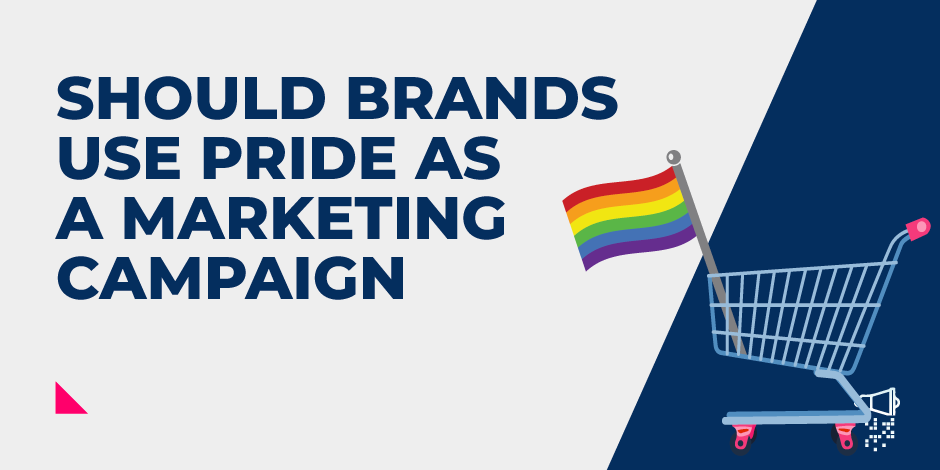
Should Brands Use Pride as a Marketing Campaign?
As a search engine optimisation company and digital PR agency, we are always interested in the latest marketing and advertising trends. One trend which has taken the advertising world by storm over the past few years is corporations adopting the LGBT+ pride flag during pride month.
There’s something about seeing row upon row of supermarket products plastered in somewhat clichéd platitudes and rainbows, however, that makes some of us a little uneasy.
Whilst it’s great to feel acceptance from a wide range of corporations, the reasons behind sporting colourful rainbow logos may come from a darker place – one of corporate profit.
We decided to see whether or not organisations are actively supporting the LGBT+ community, and how the community felt about ‘corporate pride’ in general.
Online Responses to Rainbow Capitalism
Dubbed ‘rainbow capitalism’, the LGBT+ community has a lot to say about brands and corporations ‘rainbow washing’ their products for profit.
While some LGBT+ people appreciate the extra visibility for their community in everyday life during pride, there is nowhere where the controversial nature of pride marketing is more apparent than on Twitter. This is where we see a lot of criticism about these brand tie-ins.
Notably, the corporate Queen herself, Kim K, faced a lot of backlash from Twitter followers when she plugged her mobile game by posting a pride flag as a backdrop to her in-game avatar.
Happy Pride Month! I love how there are so many ways to express yourself in my game! @KKHOfficial https://t.co/RY2SozLdCU pic.twitter.com/IRlLADQA49
— Kim Kardashian West (@KimKardashian) June 10, 2021
Responses to this post include:
![]() “Happy Pride! Here’s a shameless ad for my game!” Stop that. – @robdaemon, June 10 2021
“Happy Pride! Here’s a shameless ad for my game!” Stop that. – @robdaemon, June 10 2021
![]() What’s wrong with y’all?! Can’t you say Happy Pride Month without selling something? – @TMahogany44, Jun 12 2021
What’s wrong with y’all?! Can’t you say Happy Pride Month without selling something? – @TMahogany44, Jun 12 2021
With a huge amount of replies to the Tweet being of the sentiment that this post was nothing more than a blatant money-grab, it’s pretty clear that pride tie-ins are often not viewed as authentic attempts to support the LGBT+ community.
However, not all responses to Kim K have been critical, with some people appreciating her acknowledgement of pride month:
![]() Love you, your fans in the LGBTQ+ community are so grateful for you!!!! – @MichaelDavidTV, Jun 10 2021
Love you, your fans in the LGBTQ+ community are so grateful for you!!!! – @MichaelDavidTV, Jun 10 2021
These positive responses to her post, however, are in the minority.
Some people are so sceptical of the reasons behind corporations using LGBT+ themes in general, that around 9% of survey participants stated that they would purposefully NOT purchase products with brand pride tie-ins.
Not even the world of crypto is free from the lure of ‘corporate wokism’. The news of the creation of a new LGBT+ cryptocurrency, Maricoin, has been met with a barrage of criticism across the internet. Particularly because the name of the currency is derived from a homophobic slur in the Spanish language.
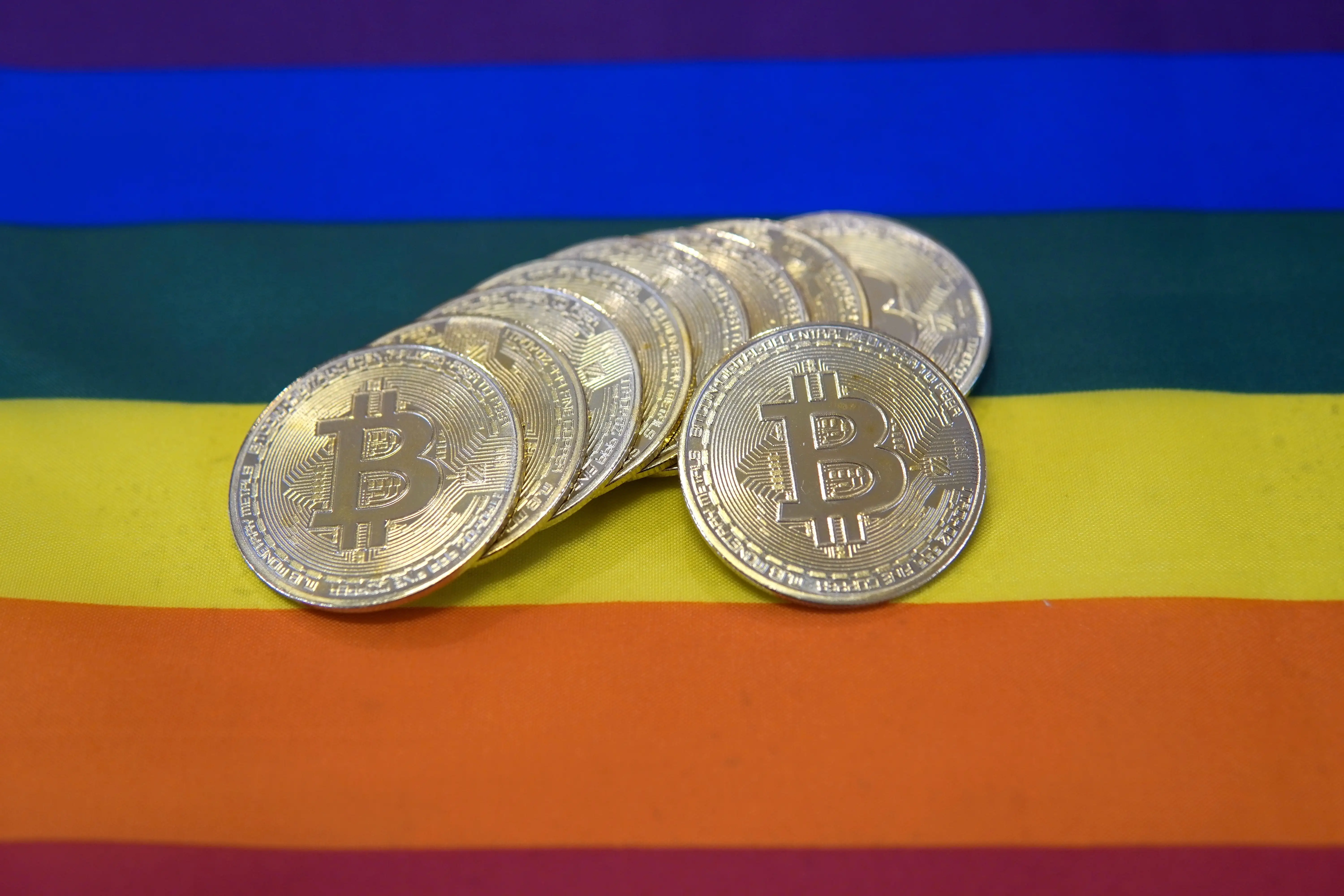
Photo credit: Wirestock Creators / Shutterstock
Referred to as ‘a marketing gimmick’ by LGBT+ news site Openly, here’s what else the online community has to say about this new crypto.
![]() Oh boy, they’re queering capitalism. – @hels, Jan 3 2022
Oh boy, they’re queering capitalism. – @hels, Jan 3 2022
![]() NOT MARICOIN. NOT THAT. – @theferocity, Jan 3 2022
NOT MARICOIN. NOT THAT. – @theferocity, Jan 3 2022
Pride Where it’s Profitable
Another controversy regarding corporate pride is that many companies openly support LGBT+ rights in countries where the community is largely accepted, and where ‘rainbow washing’ is profitable. By doing this, companies are seemingly ignoring the plight of LGBT+ communities in countries that are more oppressive to their queer citizens.
Most notably, perhaps, is Facebook. Anyone logging onto their Facebook accounts during pride month will have noticed an array of rainbow content. That is if you live in a Western country.
While they did have a pride-themed logo globally during pride month, Facebook has been heavily criticised for their history of hiding pride-themed frames and react buttons in countries with anti-gay sentiment, where, arguably, pride awareness is more necessary.
Although the LGBT+ visual Facebook themes are unavailable in certain countries, they seem to be aware that they need to be doing more to promote LGBT+ rights across the globe. An excerpt from a recent post on their website reads:
“To support LGBTQ+ well-being on our platforms, in Europe, the Middle East and Africa, we’re partnering with... NGOs and experts to discuss mental health, share resources and showcase inclusive Facebook communities.
In Poland, people can follow these conversations on the Campaign Against Homophobia (KPH) NGO page and in LGBTQ+ groups.”
Facebook, however, are not the only brands that have been controversial in their patchy LGBT+ support. Other companies such as Mercedes Benz openly supported pride month on their Western-based social media accounts, while keeping their Russian and Middle Eastern profiles the same, citing the need to “comply with the applicable laws and regulations of the respective countries”.
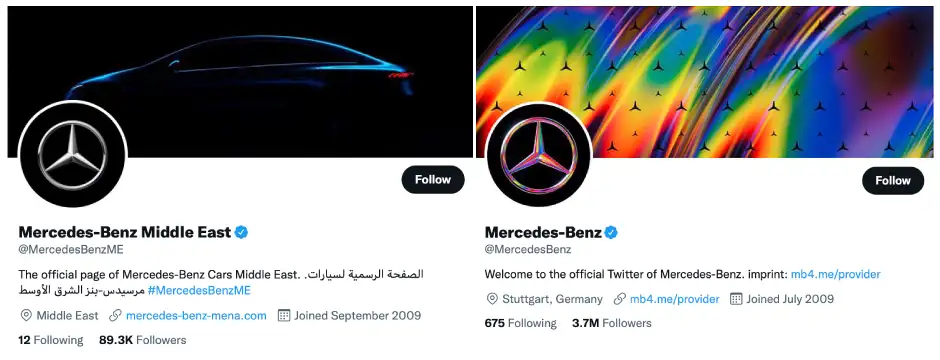
Although criticism of these companies' inconsistent LGBT+ support is valid, unfortunately, companies may face real difficulties when taking a global approach to pride marketing. A spokesperson for LGBTQ+ rights charity, Stonewall, told Fortune magazine:
“It understands how businesses need to adapt their marketing messaging and communications region by region.”
With another Stonewall member adding the importance of “safely and appropriately” supporting the rights of the community. Sadly, due to cultural sensitivities and anti-gay laws, it may not be appropriate or safe for companies to do so globally.
Are Companies Supporting LGBT+ Causes?
Considering the complexities surrounding how corporations show their support for LGBT+ people, we decided to dig deeper behind the colourful façade of these brands to see what they were REALLY doing for the rights of those they are purporting to support.
To do this, we looked at how companies have performed in the three categories the CEI (Corporate Equality Index) uses when rating LGBT+ equality in the workplace.
The first category is listed as “Workforce Protections'' for LGBT+ employees. Encouragingly, 100% of participants included “sexual orientation” in their nondiscrimination policy, with 99% of participants including “gender identity”. According to the CEI, implementation of these policies is beneficial because they help to ensure:
● Equal opportunity for all employees.
● Diverse talent acquisition and retention for broader economic growth.
● The employer stays apace with changing legal and public opinion landscapes.
Their research also shows a shifting landscape when it comes to workplace protections for LGBT+ people. In 2002, nondiscrimination policies concerning sexual orientation were applied in 92% of companies, whereas similar policies for gender identity were only present in just 5% of companies surveyed.
With nondiscrimination policies concerning gender identity now being present in 99% of companies surveyed, that means that in less than 20 years, there’s been an improvement of 94%!

Photo credit: Atstock Productions / Shutterstock
For the second category, the CEI looks at “inclusive benefits”. This refers to benefits such as healthcare, leave and retirement. In this category, the CEI considers things such as:
● Whether spouses of LGBT+ employees receive the same benefits that would be given to a heterosexual employee’s partner.
● Whether transgender and non-binary individuals receive comprehensive healthcare.
● Whether all employees are given equal compensation for equal work.
The results for the percentage of companies meeting this criteria were substantially less than those meeting the requirements for category one. With over one-fifth of participants not providing the same inclusive benefits for same and different-sex spouses and partners, only 78% of companies meet this criteria.
However, there has been a huge and necessary improvement in healthcare for transgender individuals. In 2009, just 8% of companies offered at least one transgender-inclusive healthcare plan option, compared to 91% over a decade later.
The third category is defined as “Supporting an Inclusive Culture & Corporate Social Responsibility.” This category refers to the fostering of an inclusive environment for its LGBT+ employees, as well as being ethical, charitable and responsible with regard to LGBT+ issues.
The results for the specific questions posed in this category are somewhat of a mixed bag. While 90% of companies surveyed meet certain criteria, 92% “offer a robust set of practices to support LGBTQ diversity” and “demonstrate efforts of public commitment to the LGBTQ community”. However, some percentages were much lower - for example, only 51% “attended an LGBTQ-specific recruiting event or function”.
Perhaps the most telling statistic is that, of those surveyed, only 64% “provided philanthropic support via cash or in-kind donation to at least one LGBTQ specific organisation.” That means that almost one-third of these companies didn’t donate to LGBT+ organisations while potentially using Pride-themed merch and branding to turn a greater profit.
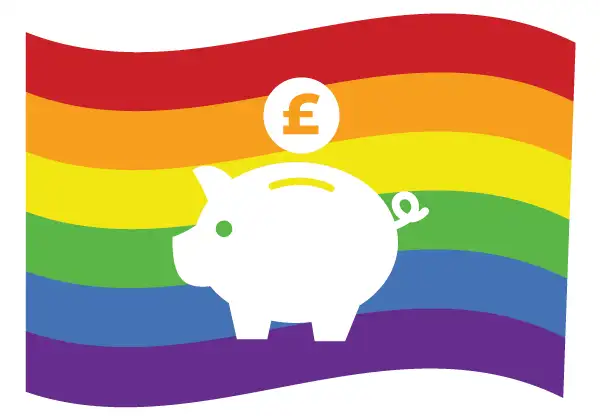
When it comes to individual companies, there are plenty of very well known brands that the CEI has listed as being one of the “Best Places to Work for LGBT Equality,” in 2021, with all of these companies having achieved a CEI rating of 100%. Encouragingly, there are 767 businesses on this list.
Many of the businesses listed here also carry out Pride related marketing campaigns, meaning that they aren’t just using Pride to sell more products- they are in fact taking action on behalf of the LGBT+ community. Just some of these big-name companies include Nike, Apple, Starbucks, IKEA, Adobe and more.
The LGBT+ Community Have Their Say on Corporate Pride
Further to our examination of brands and their treatment of their LGBT+ employees, we also asked 250 willing participants some Pride marketing related questions. The demographic breakdown was as follows:
-
119 identified as female and 131 identified as male (unfortunately, we were unable to target anyone non-binary.)
-
Participants were aged 25 to 34
-
196 identified as homosexual while the other 54 identified as bisexual.
The full survey questions and responses were as follows:
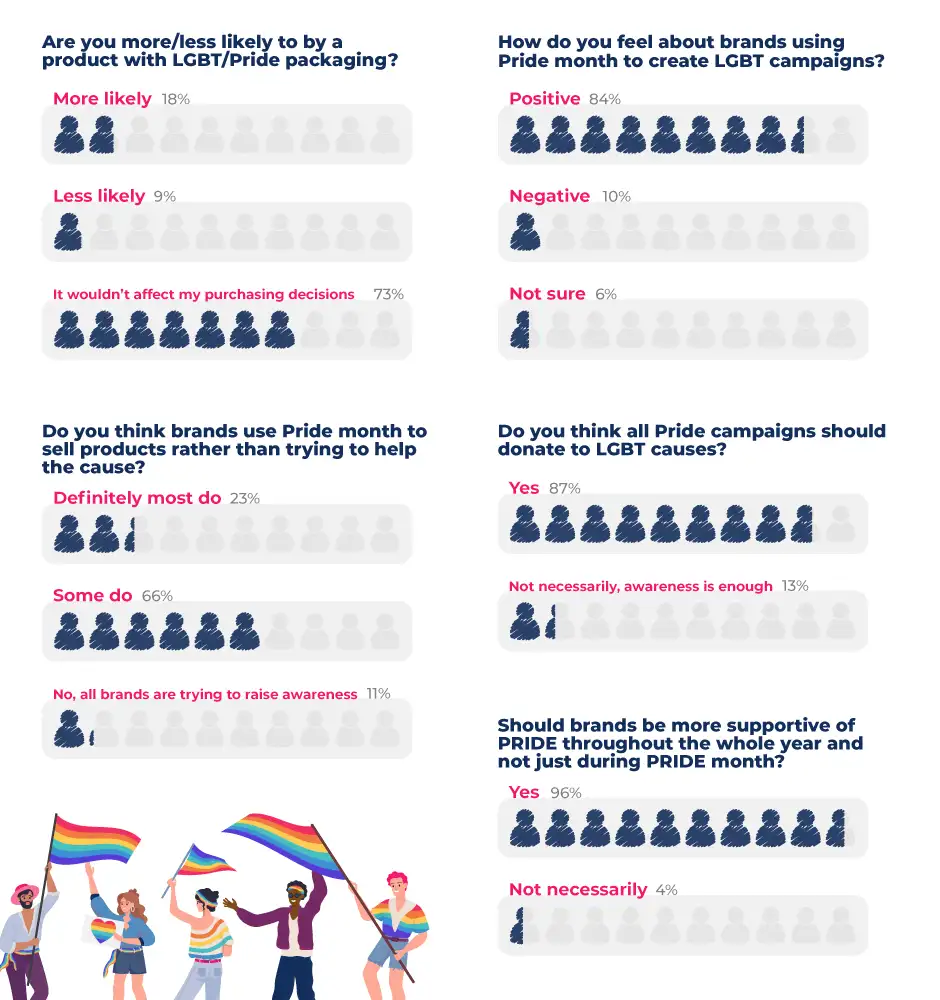
Originally written by Abby Chinery in 2019, and updated for 2022 by Clare McCafferty.
